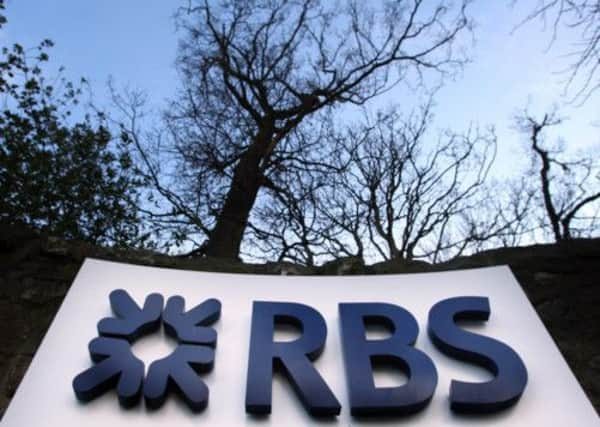Bank lending blow for businesses


Suzy Brain, the chairman of the IoD in Yorkshire, said entrepreneurs and families wanted a return to the days when banks provided lending for innovation and new homes.
Ms Brain made the comments after The Prudential Regulation Authority (PRA) said the aggregate capital shortfall at five UK banks at the end of 2012 was £27.1bn, higher than its £25bn initial estimate in March this year.
Advertisement
Hide AdAdvertisement
Hide AdThe banks had already outlined plans in March to raise £12.5bn during this year – roughly half the total shortfall. The PRA raised this estimate to £13.7bn yesterday.
Ms Brain said yesterday: “Any steps taken to put the banks on a stable, sustainable footing should not be at the expense of our entrepreneurs and successful business people, who need financial support to set up and grow businesses.
“The route out of austerity has got to come from a business boom, that boosts jobs and increases the number of people paying tax.
“The banks have got to look outward, stop navel gazing, and help our local businesses, to help the nation in its economic recovery, and get young people and the unemployed into jobs.”
Advertisement
Hide AdAdvertisement
Hide AdA leading Yorkshire academic believes that, in the longer term, Britain may see smaller banks emerging.
Dr Alper Kara, of Hull University Business School, said yesterday: “Recent rising pressure on banks about capital requirements, is a consequence of the wide belief that excessive leverage by banks have contributed immensely to the global financial crisis, which hit the British economy severely. British banks are still too large, highly leveraged and complex.”
According to Dr Kara, the Government and the Bank of England are keen to ensure that the country’s banks are well capitalised, and do not pose a threat to taxpayers.
He added: “These new measures – such as the implementation of the newly introduced leverage ratio five years earlier than the globally agreed deadline – show that the focus is on the long-term economic recovery with a stable and sound banking sector. Hence, Sir Mervyn King (the outgoing Bank of England governor) said that ‘solving banking sector problems is the work of a generation’.
Advertisement
Hide AdAdvertisement
Hide Ad“This choice may be an impediment to the slow economic recovery we are observing at the moment.
“Banks, expected to increase lending to the businesses and families to kick start the economy, may have to concentrate on adjusting their balance sheets.”
Although plans were already proposed to fill the capital shortfall, Dr Kara said that the new announcement will increase the pressure on banks.
He added: “Reaching the targeted capital requirements can either be achieved by supplementing the capital base, or by reducing lending to the economy.
Advertisement
Hide AdAdvertisement
Hide Ad“The latter will not be supportive of pushing economic growth and creating jobs.
“In particular, two institutions affected from the introduction of the new leverage ratio, Barclays and Nationwide, unlike others, were already supporting economic recovery by increasing their net lending. Reaching the new capital targets may discourage them.
“In the long term, the consequence of these policies will be smaller size banks, which is what is planned to be achieved by the Government.”
The PRA said it has asked firms to ensure that all plans to address shortfalls do not reduce lending to the real economy.
Advertisement
Hide AdAdvertisement
Hide AdHowever, there are fears the tough rules will hamper their ability to lend at a crucial time for the wider economic recovery.
Kevin Burrowes, UK financial services leader at PricewaterhouseCoopers, said yesterday: “While more transparency is welcome, it is debatable whether this disclosure is supportive of pushing economic growth or facilitates more bank lending.”